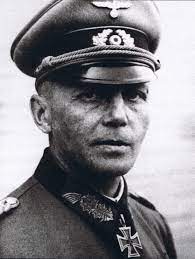Posted on 18th September, 2024 in Blog posts
In My Grandfather’s Shadow: a case of inherited trauma


Angela Findlay’s In My Grandfather’s Shadow explores how post-traumatic stress disorder can manifest itself for generations after the original trauma. Her grandfather’s realisation that he had been a moral failure, had betrayed his own ethical principles by conforming to the revolutionary ideology and behaviour of the Third Reich, was just that.
The effect of revolution on Russian families has been explored by Orlando Figes. As far as I am aware, very little has been written about the effects on Chinese people of the savage attempts to destroy the old moral order and replace it by a Marxist-Leninist one. Yet it is an important issue, whether the values of a quarter of humankind have indeed been replaced by aggressive competitiveness, or whether traditional values are seeping back.
Knowledge of the trauma through which so many Chinese went is being kept alive, to an extent, by the brave Sparks described in the book of that name by Ian Johnson. That book is concerned with the victims and their rehabilitation; no one has looked, yet, at the perpetrators of violence and moral revolution in China. That has been done in Germany and the main exponent has been the son, Niklaus Frank, of the Nazi’s governor general of (what had been) Poland, Hans Frank.
Angela Findlay’s grandfather is not of the same order of vileness as Hans Frank. General von Graffen was more ordinary; he looked away from the double genocide in occupied Eastern Europe; the values with which he had been raised were forgotten in his conformity to the requirements of his career and his commanders.
From his correspondence, it seems that he knew, all the time, that he was complicit, that this was wrong. So, in fact, did many much more guilty Nazi leaders than he. As the Third Reich appeared doomed, Himmler himself, strategist of genocide, commanded that the mass murders and the death camps be hidden. His henchmen hid themselves, they killed themselves, they fled abroad because they knew that the rest of humanity saw them as criminals, because what they had done ran counter to the most deeply held values of human beings everywhere.
They thought, and their enemies probably thought, that these values were Christian. Yet the student of other cultures than the Christian knows that they are universal; Christian values are simply the Western expression of universal values.
Every culture finds its own way to express and reinforce values, of which the kernel is universal because it derives from our biology. The variety of those expressions is legion, from Shinto to Sikhism, from Druidism to Islam. Apparently, there are thousands of different Christian churches; the Coptic, Orthodox, Roman Catholic, Anglican and Mormon churches are only the most prominent.
As a boy, Karl von Graffen was taught the Lutheran version, yet when, as a senior officer, he was required to do things that conflicted with those values, his moral convictions were not strong enough to overcome the tribalism which had swept over Germany and demanded his conformity.
Many of the worst Nazi perpetrators had been raised as Roman Catholics. Perhaps in their upbringing, the values of Christ had been forgotten in the attention to ritual and feeling of exclusivity. Once the reinforcement of values in any given society becomes institutionalised, the institution is at risk of becoming the reason for existence, not the practice of the values. In China, the inclusiveness and tolerance of the Confucian sages, their pragmatism, metamorphosed into intransigent conformism and harsh rules. Renewal may today be taking place, as it has done in many of the Christian churches, as they try to shed the political excrescences that have accumulated over time.
How to ensure that it is the values, the virtues, that are internalised by children at an early age, is one of the great questions of our time. We need more people to stand up and stand out, as General von Graffen did not, more whistle-blowers, more mavericks; they need to be armed in childhood by reinforcement, in whatever cultural setting they are, with the values that are instinctive.
The underlying theme of my novel To the River is virtue. I suggest that humane values are instinctive to people unadulterated by man-made ideologies/religions. The protagonist, Lucia Riva, not only reflects those instincts but has the courage to act on them. I suggest that it is because what she imbibed from her mother was more strongly held than the religious and ideological notions that floated around her society, and that she had been helped by having a sceptical but public spirited teacher and some perspective on the contemporary world from her knowledge of the classical, pre-Christian, world.
That’s my theory, its open to question.
